Freakonomics Radio
Freakonomics co-author Stephen J. Dubner uncovers the hidden side of everything. Why is it safer to fly in an airplane than drive a car? How do we decide whom to marry? Why is the media so full of bad news? Also: things you never knew you wanted to know about wolves, bananas, pollution, search engines, and the quirks of human behavior. To get every show in the Freakonomics Radio Network without ads and a monthly bonus episode of Freakonomics Radio, start a free trial for SiriusXM Podcasts+ on Apple Podcasts or by visiting siriusxm.com/podcastsplus.
663. Is Weed a Performance-Enhancing Drug?
The science says no, at least not in the athletic sense. But the psychic benefits can be large — just ask former N.F.L. star Ricky Williams. He says athletes should consider cannabis a healing drug, not a party drug. Even the N.F.L. is starting to agree. (Part two of a two-part series.)
SOURCES:Angela Bryan, professor, associate chair for faculty development in the department of psychology and neuroscience at the University of Colorado, Boulder.Ricky Williams, former N.F.L. running back, founder of Highsman.
RESOURCES:"Using A Lab On Wheels To S...
662. If You’re Not Cheating, You’re Not Trying
In sports, the rules are meant to be sacrosanct. But when it comes to performance-enhancing drugs, the slope is super-slippery. (Part one of a two-part series.)
SOURCES:April Henning, associate professor of international sport management at Heriot-Watt University in Edinburgh, Scotland.Aron D'Souza, founder of the Enhanced Games.Floyd Landis, former professional cyclist, founder of Floyd's of Leadville.Louisa Thomas, staff writer at The New Yorker.
RESOURCES:Doping: A Sporting History, by April Henning and Paul Dimeo (2022)."The Man Who Brought Down Lance Armstrong," by Matt Hart (The Atlantic, 2018).Cycle of Lies: The Fall of...
Why Don’t Running Backs Get Paid Anymore? (Update)
They used to be the N.F.L.’s biggest stars, with paychecks to match. Now their salaries are near the bottom, and their careers are shorter than ever. In this updated episode from 2025, we speak with an analytics guru, an agent, an economist, and some former running backs to understand why.
SOURCES:Brian Burke, sports data scientist at ESPN.Roland Fryer, professor of economics at Harvard University.LeSean McCoy, former running back in the N.F.L., co-host for Fox's daily studio show, "The Facility."Robert Smith, former running back for the Minnesota Vikings, N.F.L...
661. Can A.I. Save Your Life?
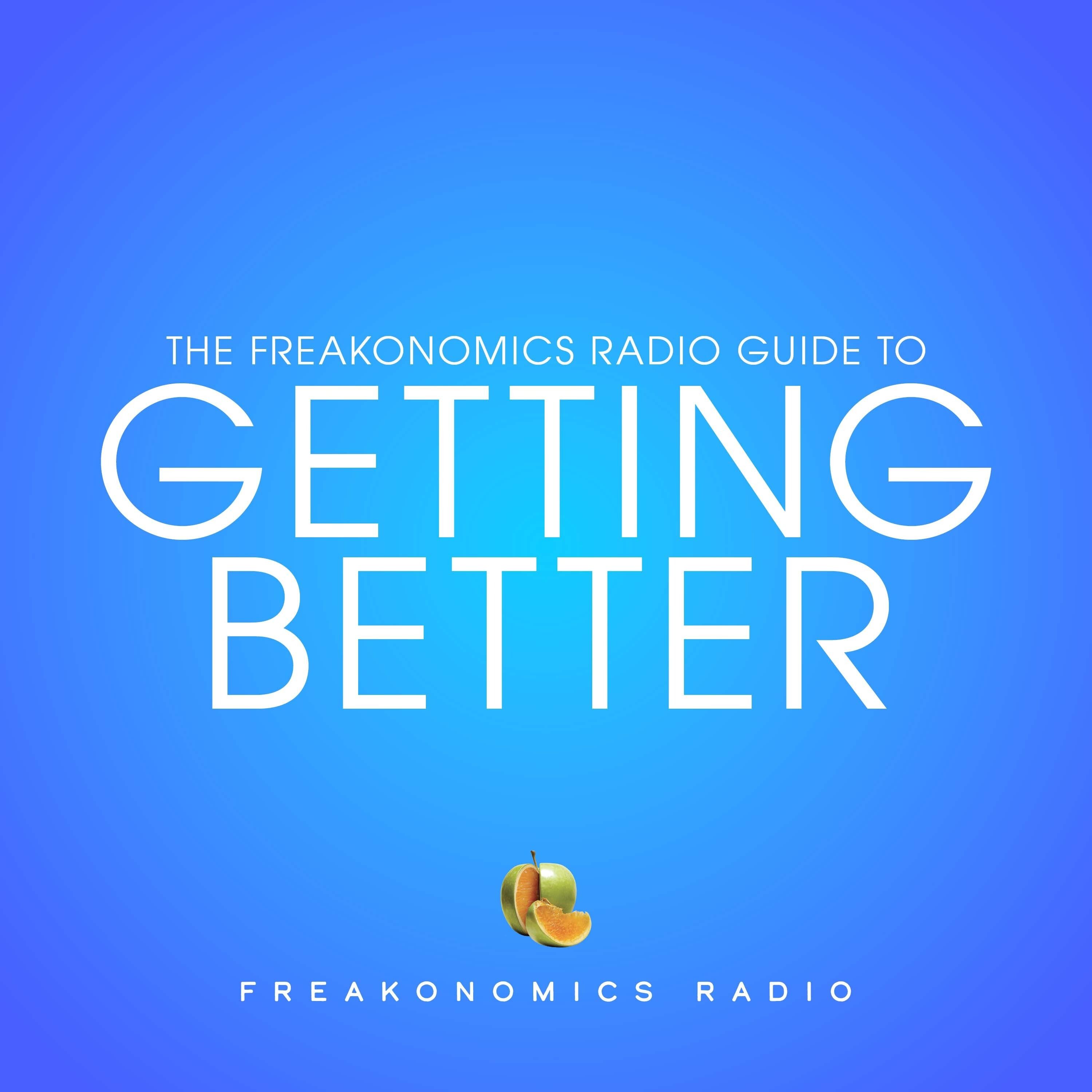
For 50 years, the healthcare industry has been trying (and failing) to harness the power of artificial intelligence. It may finally be ready for prime time. What will this mean for human doctors — and the rest of us? (Part four of “The Freakonomics Radio Guide to Getting Better.”)
SOURCES:Bob Wachter, professor, chair of the department of medicine at the University of California, San Francisco.Pierre Elias, cardiologist, assistant professor of biomedical informatics at Columbia University, medical director for artificial intelligence at NewYork-Presbyterian Hospital.
RESOURCES:A Giant Leap: How AI Is Transforming Healthcare and What That Mea...
660. The Wellness Industry Is Gigantic — and Mostly Wrong

Zeke Emanuel (a physician, medical ethicist, and policy wonk) has some different ideas for how to lead a healthy and meaningful life. It starts with ice cream. (Part three of “The Freakonomics Radio Guide to Getting Better.”)
SOURCES:Zeke Emanuel, oncologist, bioethicist, professor at the University of Pennsylvania.
RESOURCES:Eat Your Ice Cream: Six Simple Rules for a Long and Healthy Life, by Zeke Emanuel (2026)."Nutrition Science’s Most Preposterous Result," by David Merritt Johns (The Atlantic, 2023).
EXTRAS:"Is Ozempic as Magical as It Sounds?" by Freakonomics Radio (2024)."The Suddenly Diplomatic Rahm Emanuel,"...
Steve Levitt Quits His Podcast, Joins Ours
After five years, Levitt is ending People I (Mostly) Admire, and will start hosting the occasional Freakonomics Radio episode. We couldn’t be happier.
SOURCES:Steve Levitt, co-author of Freakonomics and host of People I (Mostly) Admire.
RESOURCES:"How to Help Kids Succeed," by People I (Mostly) Admire (2025)."Feeling Sound and Hearing Color," by People I (Mostly) Admire (2024)."Richard Dawkins on God, Genes, and Murderous Baby Cuckoos," by People I (Mostly) Admire (2024)."Arnold Schwarzenegger Has Some Advice for You," by People I (Mostly) Admire (2024)."Drawing from Life (and Death)," by People I (Mostly) Admire (2023)."Yuva...
659. Can Marty Makary Fix the F.D.A.?

It regulates 20 percent of the U.S. economy, and its commissioner has an aggressive agenda — faster drug approvals, healthier food, cures for diabetes and cancer. How much can he deliver? (Part two of “The Freakonomics Radio Guide to Getting Better.”)
SOURCES:Marty Makary, commissioner of the Food and Drug Administration.
RESOURCES:"Clinical Trials Affected by Research Grant Terminations at the National Institutes of Health," by Vishal Patel, Michael Liu, and Anupam Jena (JAMA Internal Medicine, 2025)."What the evidence tells us about Tylenol, leucovorin, and autism," by Matthew Herper (STAT, 2025)."I Run the F.D.A. Pharm...
658. This Is Your Brain on Supplements

We all want to stay sharp, and forestall the cognitive effects of aging. But do brain supplements actually work? Are they safe? And why doesn’t the F.D.A. even know what’s in them? (Part one of “The Freakonomics Radio Guide to Getting Better.”)
SOURCES:Marty Makary, commissioner of the Food and Drug Administration.Peter Attia, physician, author, and host of The Peter Attia Drive.Pieter Cohen, associate professor of medicine at Harvard Medical School, physician at the Cambridge Health Alliance.
RESOURCES:"Protein Powders and Shakes Contain High Levels of Lead," by Paris Mart...
Are Personal Finance Gurus Giving You Bad Advice? (Update)
One Yale economist certainly thinks so. But even if he’s right, are economists any better? We find out, in this update of a 2022 episode.
SOURCES:James Choi, professor of finance at the Yale School of Management.Morgan Housel, personal finance author and partner at the Collaborative Fund.
RESOURCES:The Art of Spending Money: Simple Choices for a Richer Life, by Morgan Housel (2025).“Popular Personal Financial Advice versus the Professors,” by James J. Choi (Journal of Economic Perspectives, 2022).“Media Persuasion and Consumption: Evidence from the Dave Ramsey Show,” by Felix Chopra (SSRN, 2021).The Psychology of Money: Ti...
Are You Ready for a Fresh Start? (Update)
Behavioral scientists have been exploring whether a psychological reset can lead to lasting change. In this update of a 2021 episode, we survey evidence from the London Underground, Major League Baseball, and New Year’s resolutions to look at accidental fresh starts, forced fresh starts, fresh starts that backfire — and the ones that succeed.
SOURCES:Katy Milkman, professor at the Wharton School.Andy Byford, former commissioner of Transport for London.Ferdinand Rauch, economist at the University of St. Gallen.Hengchen Dai, professor at U.C.L.A.’s Anderson School of Management.Bob Tewksbury, former big-league pitcher.
R...
Are the Rich Really Less Generous Than the Poor? (Update)
A series of academic studies suggest that the wealthy are, to put it bluntly, selfish jerks. It’s an easy narrative to embrace — but is it true? As part of GiveDirectly’s “Pods Fight Poverty” campaign, we revisit a 2017 episode.
SOURCES:Jim Andreoni, professor of economics at the University of California, San Diego.Nikos Nikiforakis, professor of economics at New York University in Abu Dhabi.Paul Piff, associate professor of psychology at the University of California, Irvine.Jan Stoop, associate professor of applied economics at the Erasmus School of Economics.
RESOURCES:"Are the Rich More Selfish...
657. Whose “Messiah” Is It Anyway?
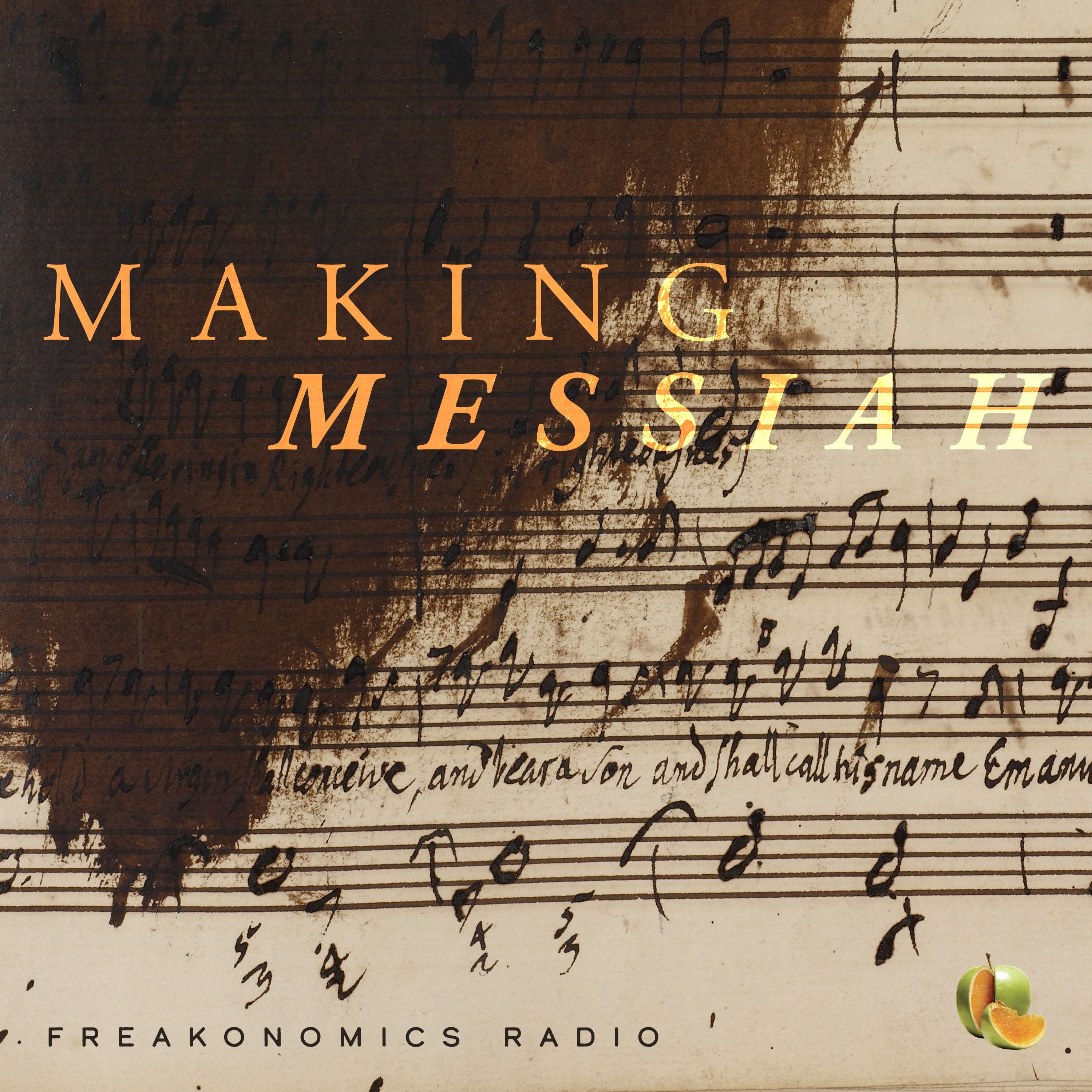
All sorts of people have put their mark on Messiah, and it has been a hit for nearly 300 years. How can a single piece of music thrive in so many settings? You could say it’s because Handel really knew how to write a banger. (Part three of “Making Messiah.”)
SOURCES:Charles King, political scientist at Georgetown University.Jane Glover, classical music scholar, conductor.Katharine Hogg, musicologist, head librarian at the Foundling Museum.Susannah Heschel, religion professor, chair of Jewish Studies at Dartmouth College.Mark Risinger, teacher at St. Bernard’s School.Michael Marissen, professor emeritus of music...
Who Pays for “Messiah”?

In the 18th century, Handel relied on royal patronage. Today, it’s donors like Gary Parr who keep the music playing. In this bonus episode of our “Making Messiah” series, Parr breaks down the economics of the New York Philharmonic.
SOURCES:Gary Parr, senior managing director and on the management committee at Apollo, philanthropist.
RESOURCES:"A Notoriously Jinxed Concert Hall Is Reborn, Again," by Michael Kimmelman (New York Times, 2022)."Apollo’s New Guy Is a Legend in Banking, a Novice in Buyouts," by Sonali Basak (Bloomberg, 2017).“Handel’s Messiah,” performed by The London Symphony Orchestra (2007...
656. How Handel Got His Mojo Back

When he wrote Messiah (in 24 days), Handel was past his prime and nearly broke. One night in Dublin changed all that. (Part two of “Making Messiah.”)
SOURCES:Charles King, political scientist at Georgetown University.Chris Scobie, curator of music, manuscripts, and archives at the British Library.Ellen Harris, musicologist and professor emeritus at MIT.Mark Risinger, teacher at St. Bernard's School.Philip Rushforth, organist and master of the choristers at the Chester Cathedral.Proinnsías Ó Duinn, conductor and music director of Our Lady's Choral Society.
RESOURCES:Every Valley: The Desperate Lives and Troubled Times That Mad...
655. “The Greatest Piece of Participatory Art Ever Created”
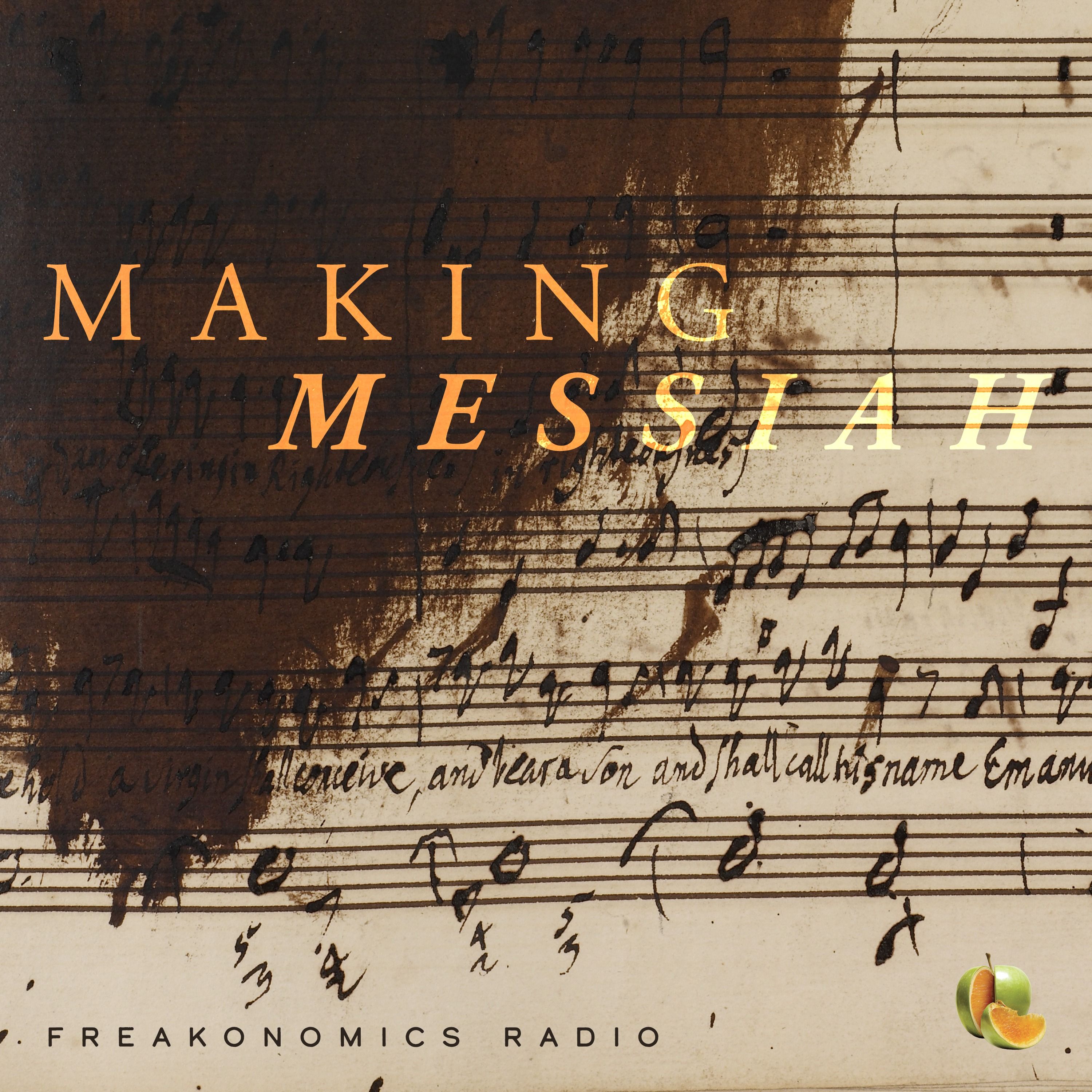
Why does an 18th-century Christian oratorio lend such comfort to our own turbulent times? Stephen Dubner sets out for Dublin to tell the story of George Frideric Handel’s Messiah. (Part one of “Making Messiah.”)
SOURCES:Charles King, political scientist at Georgetown University.Katrine Nyland Sørensen, Danish broadcaster, host of Handel's Messiah - The Advent Calendar.Mark Risinger, teacher at St. Bernard's School.Michael and Aileen Casey, Dublin conservationists.Proinnsías Ó Duinn, conductor and music director of Our Lady's Choral Society.Stuart Kinsella, tenor soloist and consort singer.
RESOURCES:Every Valley: The Desperate Lives and T...
Dying Is Easy. Retail Is Hard. (Update)
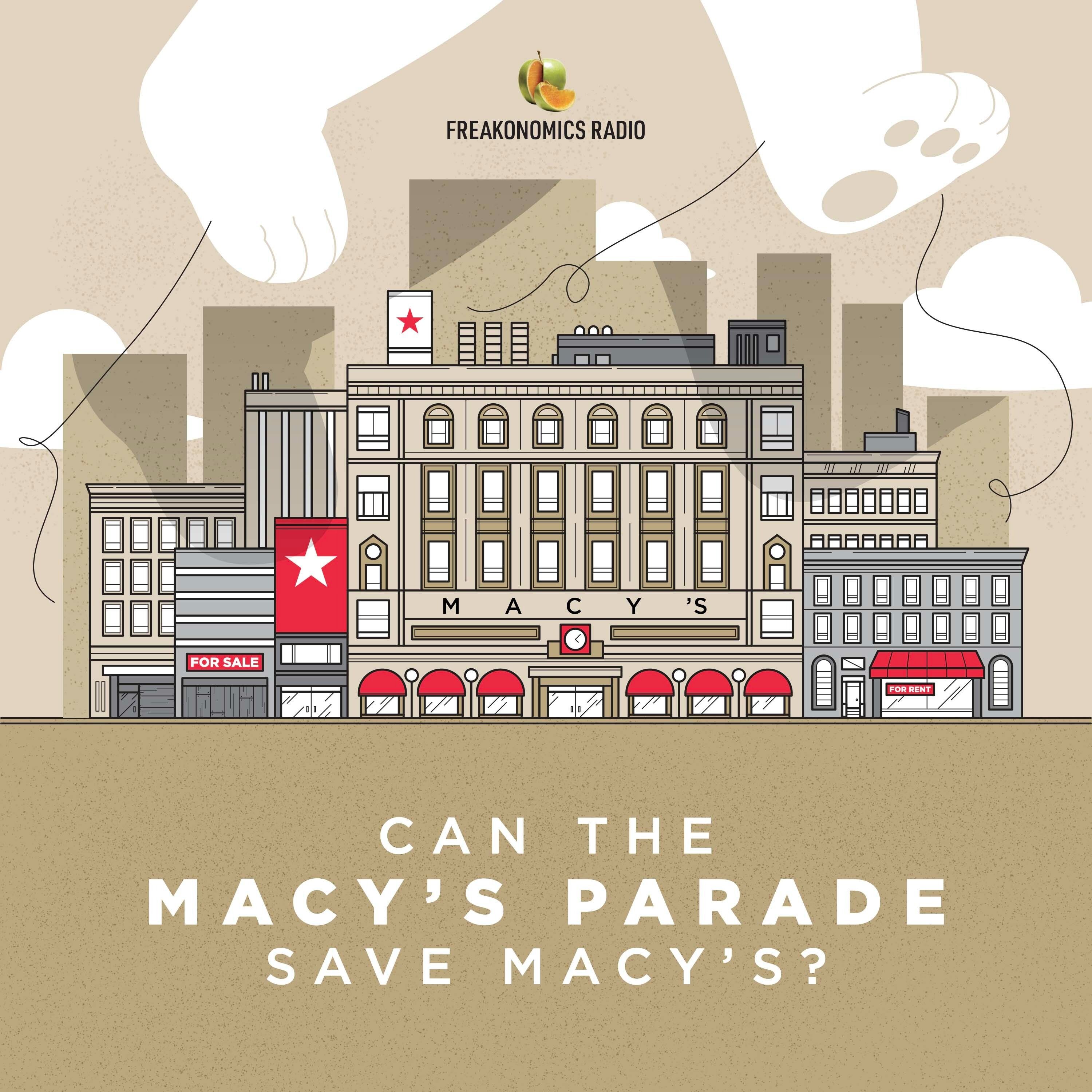
Macy’s wants to recapture its glorious past. The author of the Wimpy Kid books wants to rebuild his dilapidated hometown. We just want to listen in. (Part two of a two-part series, first published in 2024)
SOURCES:Mark Cohen, former professor and director of retail studies at Columbia Business School.Will Coss, vice president and executive producer of Macy’s Studios.Jeff Kinney, author, cartoonist, and owner of An Unlikely Story Bookstore and Café.Tony Spring, chairman and C.E.O. of Macy’s Inc.
RESOURCES:"How Macy’s CEO Tony Spring Is Turning the Retaile...
Is Macy’s Thanksgiving Parade Its Most Valuable Asset? (Update)

The iconic department store calls the parade its “gift to the nation.” With 30 million TV viewers, it’s also a big moneymaker — at least we think it is: when it comes to parade economics, Macy’s is famously tight-lipped. In this 2024 episode, we try to loosen them up. (Part one of a two-part series.)
SOURCES:John Cheney, carpenter at Macy’s Studios.Will Coss, vice president and executive producer of Macy’s Studios.Jeff Kinney, author, cartoonist, and owner of An Unlikely Story Bookstore and Café.Kevin Lynch, vice president of global helium at Messer.Jen Neal, executive vi...
654. Is the Public Ready for Private Equity?
A Trump executive order is giving retail investors more access to private markets. Is that a golden opportunity — or fool’s gold?
SOURCES:Elisabeth de Fontenay, professor of law at Duke University.Steven Kaplan, professor of entrepreneurship and finance at the University of Chicago.
RESOURCES:"Democratizing Access to Alternative Assets for 401(k) Investors," (The White House, 2025)."The (Heterogeneous) Economic Effects of Private Equity Buyouts," by Steven J. Davis, John Haltiwanger, Kyle Handley, Ben Lipsius, Josh Lerner, and Javier Miranda (Management Science, 2025)."Risk-Adjusted Returns of Private Equity Funds: A New Approach," by Arthur G. Korteweg and St...
653. Does Horse Racing Have a Future?
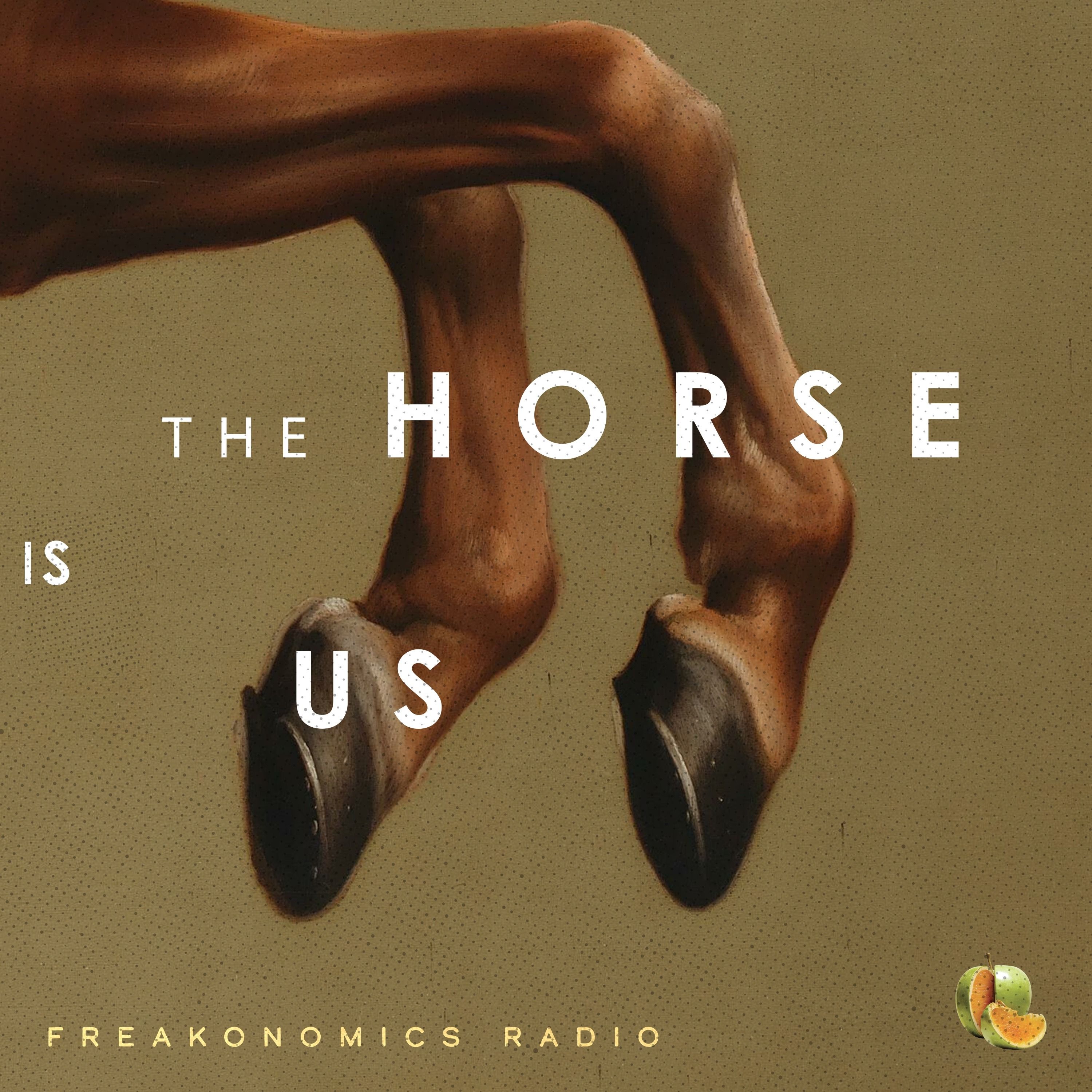
Thoroughbred auction prices keep setting records. But tracks are closing, gambling revenues are falling, and the sport is increasingly reliant on subsidies. Is that the kind of long shot anybody wants? (Part three of a series, “The Horse Is Us.”)
SOURCES:Anne Archer Hinkle, owner and director of Hinkle Farms.Cormac Breathnach, senior director of sales operations at Keeneland.Emily Plant, thoroughbred researcher and statistician, associate professor of marketing at the University of Montana.Mark Taylor, president of Taylor Made Farm.Marshall Gramm, horse player, professor of economics at Rhodes College in Memphis, Tennessee.Richard Migliore, head...
What Happens When You Turn 20
The world has changed a good bit since Freakonomics was first published. In this live anniversary episode, Stephen Dubner tells Geoff Bennett of PBS NewsHour everything he has learned since then. Happy birthday, Freakonomics.
SOURCES:Geoff Bennett, co-anchor and co-managing editor of PBS News Hour.
RESOURCES:Freakonomics Twentieth Anniversary Edition: A Rogue Economist Explores the Hidden Side of Everything, by Stephen Dubner and Steve Levitt (2025).
Hosted by Simplecast, an AdsWizz company. See pcm.adswizz.com for information about our collection and use of personal data for advertising.
652. Inside the Horse-Industrial Complex

How does Kentucky keep itself atop the thoroughbred industry? Is a champion stallion really worth $200,000 per date? And how many hands can one jockey have? (Part two of a series, “The Horse Is Us.”)
SOURCES:Emily Plant, thoroughbred researcher and statistician.Jill Stowe, professor of economics at the University of Kentucky.Mark Taylor, president of Taylor Made Farm.Oscar Gonzales, vice chair of the California Horse Racing Board.Richard Migliore, head racing analyst for Fox Sports and New York Racing Association, retired jockey.
RESOURCES:"Horse racing industry braces for crackdown on illegal immigration," by Ximena...
651. The Ultimate Dance Partner
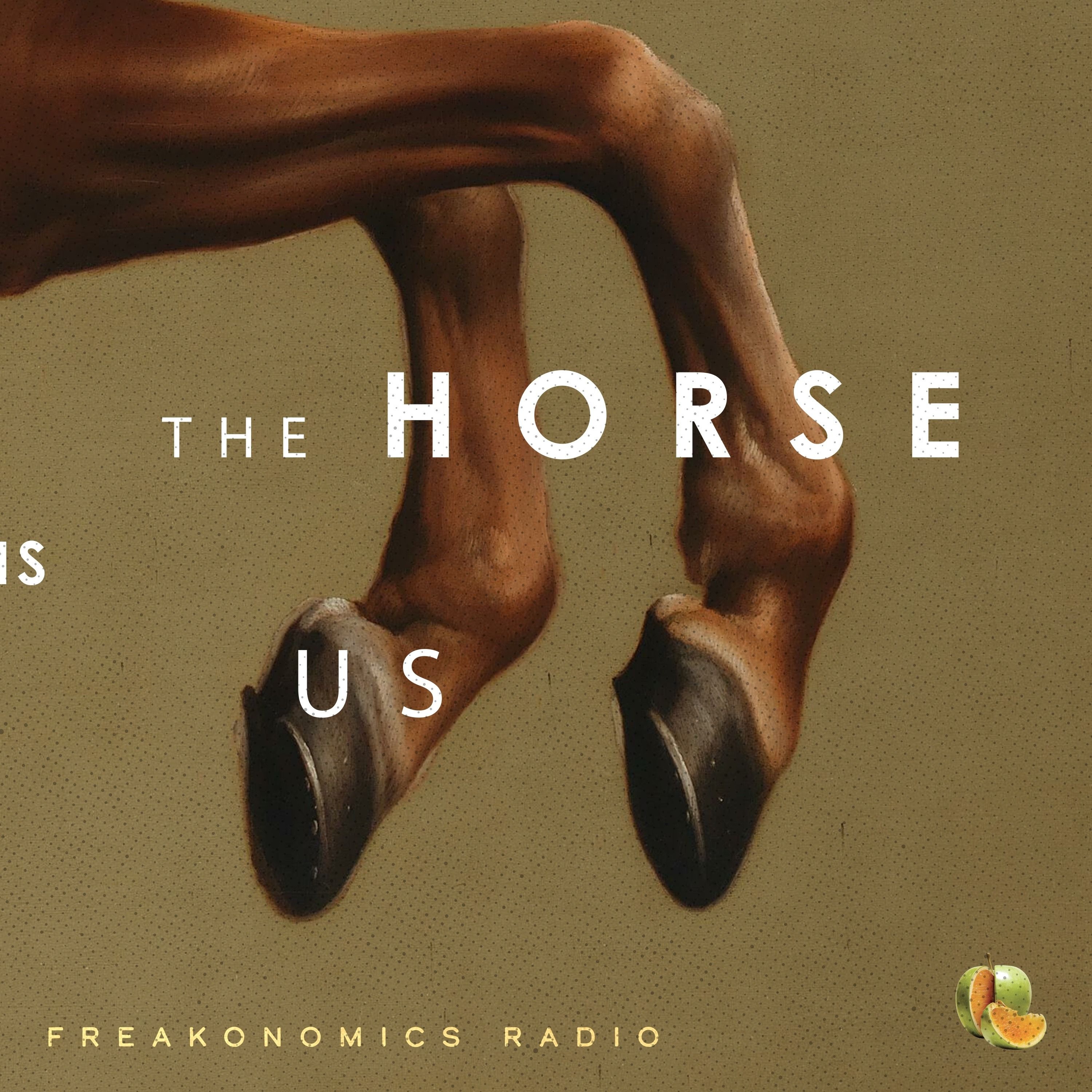
For most of human history, horsepower made the world go. Then came the machines. So why are there still seven million horses in America? (Part one of a series, “The Horse Is Us.”)
SOURCES:Ann N. Greene, historian of 19th century America, retired professor at the University of Pennsylvania.Constance Hunter, chief economist at the Economist Intelligence Unit.Elizabeth Bortuzzo, professional horse rider.Mark Paul, professor of economics at Rutgers University.Peter Frankopan, professor of global history at Oxford History.
RESOURCES:"2023 Economic Impact Study of the U.S. Horse Industry," (American Horse Council Foundation, 2024).Riding...
Are Two C.E.O.s Better Than One? (Update)
Spotify, Oracle, and Comcast have each recently announced they’re going with co-C.E.O.s. In this 2023 episode, we dig into the research and hear firsthand stories of triumph and disaster. Also: lessons from computer programmers, Simon and Garfunkel, and bears versus alligators.
SOURCES:Jim Balsillie, retired chairman and co-C.E.O. of Research In Motion.Mike Cannon-Brookes, co-founder and C.E.O. of Atlassian.Scott Farquhar, co-founder and former co-C.E.O. of Atlassian.Marc Feigen, C.E.O. advisor.Jeffrey Sonnenfeld, professor of management studies and senior associate dean at the Yale School of M...
650. The Doctor Won’t See You Now
The U.S. has a physician shortage, created in part by a century-old reform that shut down bad medical schools. But why haven’t we filled the gap? Why are some physicians so unhappy? And which is worse: a bad doctor or no doctor at all?
SOURCES:Karen Clay, professor of economics and public policy at Carnegie Mellon University.Rochelle Walensky, physician-scientist and former director of the CDC.
RESOURCES:"Medical School Closures, Market Adjustment, and Mortality in the Flexner Report Era," by Karen Clay, Grant Miller, Margarita Portnykh, and Ethan Schmick (National Bureau of Econ...
A Question-Asker Becomes a Question-Answerer
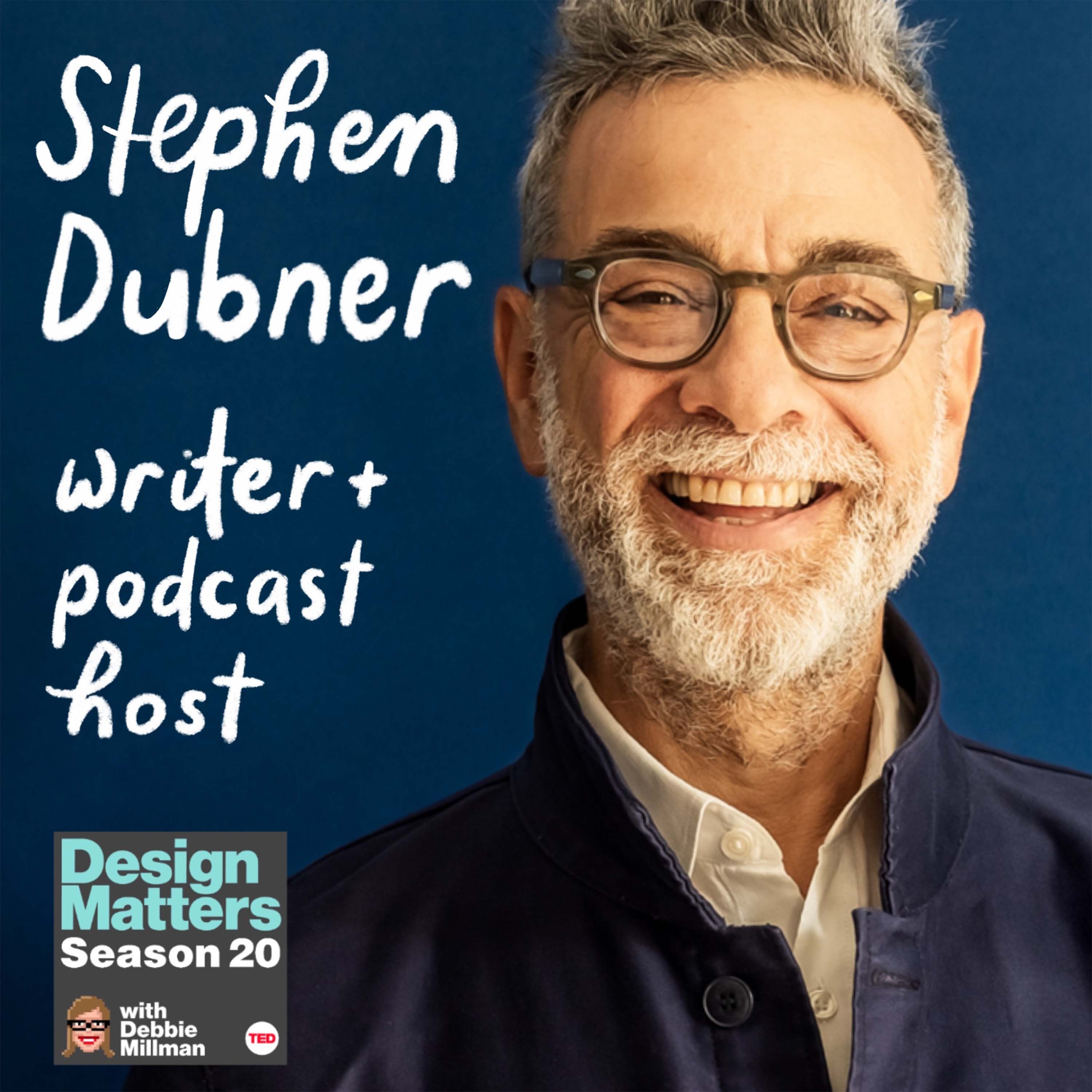
For the 20th anniversary of Freakonomics, Debbie Millman of Design Matters interviews Stephen Dubner about his upbringing, his writing career, and why it's important to “swing your swing.” Plus: a sneak peek at a new project.
SOURCES:Debbie Millman, writer and host of Design Matters with Debbie Millman.
RESOURCES:"Stephen J. Dubner," by Design Matters with Debbie Millman (2025).Turbulent Souls: A Catholic Son's Return To His Jewish Family, by Stephen Dubner (1999)."Choosing My Religion," by Stephen Dubner (New York Times, 1996).
EXTRAS:"In Search of the Real Adam Smith," by Freakonomics Radio (2022).
Hoste...
How Can We Break Our Addiction to Contempt? (Update)
Arthur Brooks, an economist and former head of the American Enterprise Institute, believes that there is only one remedy for our political polarization: love. In this 2021 episode, we ask if Brooks is a fool for thinking this — and if perhaps you are his kind of fool?
SOURCES:Arthur Brooks, professor of public and nonprofit leadership at Harvard University.
RESOURCES:“Vital Statistics on Congress,” by Molly Reynolds and Naomi Maehr (Brookings Institute, 2024).Dopamine Nation: Finding Balance in the Age of Indulgence, by Anna Lembke (2021).“Reading Too Much Political News Is Bad for Your Well-Being,” by Arthur Brook...
649. Should Ohio State (and Michigan, and Clemson) Join the N.F.L.?
Soccer leagues around the world use a promotion-and-relegation system to reward the best teams and punish the worst. We ask whether American sports fans would enjoy a similar system. (Part two of a two-part series.)
SOURCES:Domonique Foxworth, sports analyst and former N.F.L. player.Stefan Szymanski, professor of sport management at the University of Michigan.Victor Matheson, professor of economics at the College of the Holy Cross.
RESOURCES:"'Root, root, root for the home team" did TV kill minor league baseball in the 1950s?" by Stefan Szymanski (University of Michigan, 2025)."European and No...
648. The Merger You Never Knew You Wanted
The N.F.L. is a powerful cartel with imperial desires. College football is about to undergo a financial reckoning. So maybe they should team up? (Part one of a two-part series.)
SOURCES:DeMaurice Smith, former executive director of the National Football League Players Association.Domonique Foxworth, sports analyst and former N.F.L. player.Jeffrey Kessler, partner at the law firm of Winston & Strawn.Oliver Luck, sports executive and consultant.Victor Matheson, professor of economics at the College of the Holy Cross.
RESOURCES:Turf Wars: The Fight for the Soul of America's Game, by...
Is the U.S. Really Less Corrupt Than China? (Update)
In this episode we first published in 2021, the political scientist Yuen Yuen Ang argues that different forms of government create different styles of corruption — and that the U.S. and China have more in common than we’d like to admit.
SOURCES:Yuen Yuen Ang, professor of political science at Johns Hopkins University.
RESOURCES:"China’s Anti-Graft Show Is Educational, With Unintended Lessons," by Li Yuan (The New York Times, 2022).China’s Gilded Age: The Paradox of Economic Boom and Vast Corruption, by Yuen Yuen Ang (2020)."A Fair Assessment of China’s IP Protection," by Shang-Jin...
647. China Is Run by Engineers. America Is Run by Lawyers.
In his new book “Breakneck,” Dan Wang argues that the U.S. has a lot to learn from China. He also says that “no two peoples are more alike.” We have questions.
SOURCES:Dan Wang, research fellow at the Hoover Institution at Stanford University, author of Breakneck: China's Quest to Engineer the Future.
RESOURCES:Breakneck: China's Quest to Engineer the Future, by Dan Wang (2025).The Anaconda in the Chandelier: Writings on China, by Perry Link (2025)."Is the U.S. Ready for the Next War?" by Dexter Filkins (The New Yorker, 2025)."How smartphones made Shenzhen China’s in...
Is the World Ready for a Guaranteed Basic Income? (Update)
A lot of jobs in the modern economy don’t pay a living wage, and some of those jobs may be wiped out by new technologies. So what’s to be done? We revisit an episode from 2016 for a potential solution.
SOURCES:Erik Brynjolfsson, professor of economics at Stanford University.Evelyn Forget, professor of economics and community health sciences at the University of Manitoba.Sam Altman, C.E.O. of OpenAI.Robert Gordon, professor emeritus of economics at Northwestern University.Greger Larson, professor of archeology at the University of Oxford.
RESOURCES:"Here's what a Sam Al...
646. An Air Traffic Controller Walks Into a Radio Studio ...
What does it take to “play 3D chess at 250 miles an hour”? And how far will $12.5 billion of “Big, Beautiful” funding go toward modernizing the F.A.A.? (Part two of a two-part series.)
SOURCES:David Strayer, professor of cognition and neural science at the University of Utah.Dorothy Robyn, senior fellow at I.T.I.F.Ed Bastian, C.E.O. of Delta Airlines.Ed Bolen, president and C.E.O. of the National Business Aviation Association.John Strong, professor of finance and economics at the William and Mary School of Business.Kenneth Levin, retired air traff...
645. Is the Air Traffic Control System Broken?
Flying in the U.S. is still exceptionally safe, but the system relies on outdated tech and is under tremendous strain. Six experts tell us how it got this way and how it can (maybe) be fixed. (Part one of a two-part series.)
SOURCES:Dorothy Robyn, senior fellow at I.T.I.F.Ed Bastian, C.E.O. of Delta Airlines.John Strong, professor of finance and economics at the William and Mary School of Business.Kenneth Levin, retired air traffic controller.Polly Trottenberg, former deputy secretary of the U.S. Department of Transportation.
RE...
644. Has America Lost Its Appetite for the Common Good?
Patrick Deneen, a political philosopher at Notre Dame, says yes. He was a Democrat for years, and has now come to be seen as an “ideological guru” of the Trump administration. But that only tells half the story ...
SOURCES:Patrick Deneen, professor of political science at the University of Notre Dame.
RESOURCES:"The Ideological Gurus Battling for the Soul of Trump World," by Joshua Chaffin and Zusha Elinson (Wall Street Journal, 2025)."Why the MAGA-DOGE coalition will hold," by Patrick Deneen (UnHerd, 2025)."‘I Don’t Want to Violently Overthrow the Government. I Want Something Far More Revol...
Extra: A Modern Whaler Speaks Up (Update)
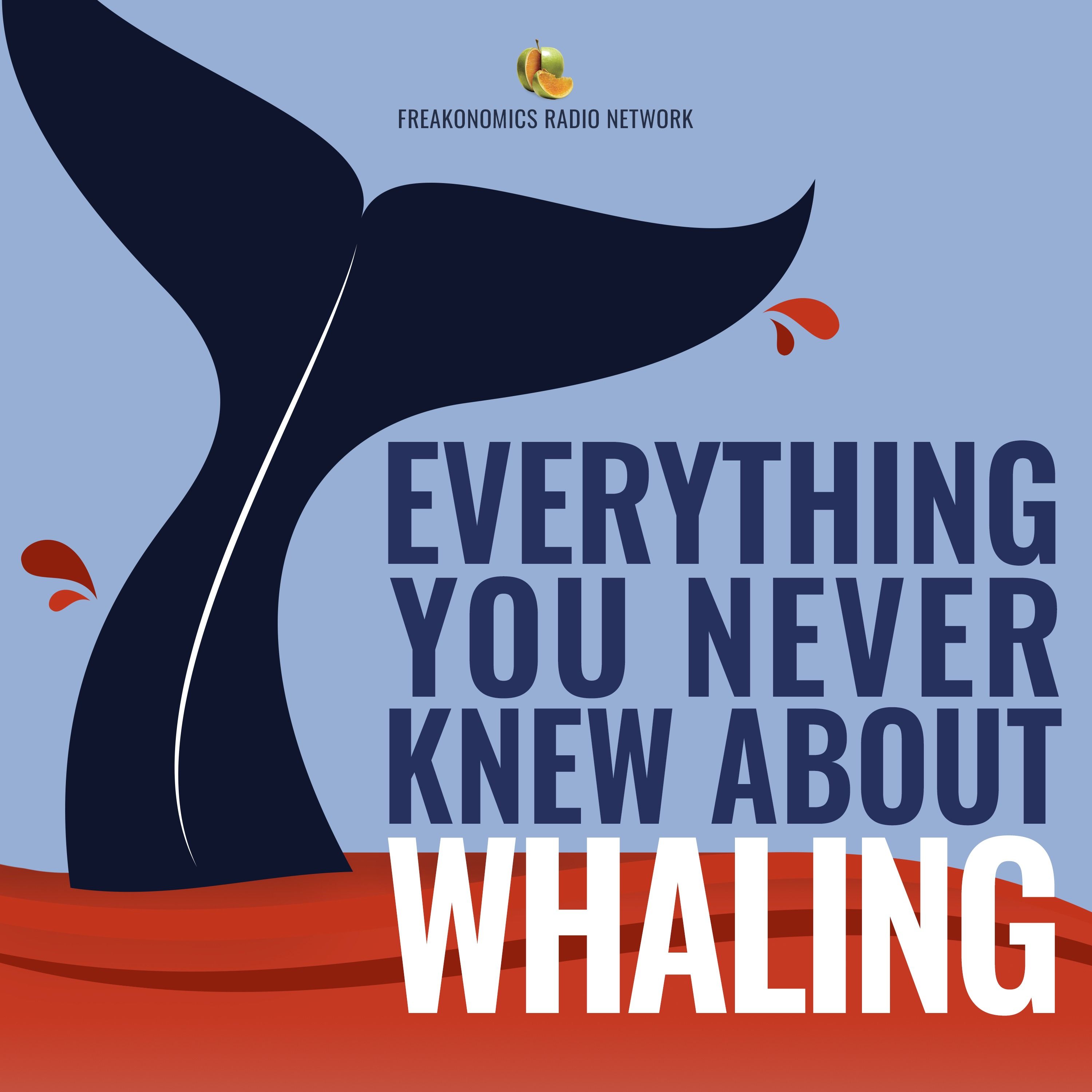
Bjørn Andersen has killed hundreds of minke whales. He tells us how he does it, why he does it, and what he thinks would happen if whale-hunting ever stopped. (This bonus episode is a follow-up to our series “Everything You Never Knew About Whaling.”)
SOURCES:Bjørn Andersen, Norwegian whaler.
RESOURCES:"Digestive physiology of minke whales," by S.D. Mathiesen, T.H. Aagnes, W. Sørmo, E.S. Nordøy, A.S. Blix, M.A. Olsen (Developments in Marine Biology, 1995)."Norway Is Planning to Resume Whaling Despite World Ban," by Craig Whitney (New York Times...
What Can Whales Teach Us About Clean Energy, Workplace Harmony, and Living the Good Life? (Update)

In the final episode of our whale series, we learn about fecal plumes, shipping noise, and why Moby-Dick is still worth reading. (Part 3 of "Everything You Never Knew About Whaling.")
SOURCES:Michele Baggio, professor of economics at the University of Connecticut.Mary K. Bercaw-Edwards, professor of maritime English at the University of Connecticut and lead foreman at the Mystic Seaport Museum.Hester Blum, professor of English at Washington University in St. Louis.Eric Hilt, professor of economics at Wellesley College.Kate O’Connell, senior policy consultant for the marine life program at the Animal Welfare Institute.Mar...
Why Do People Still Hunt Whales? (Update)

For years, whale oil was used as lighting fuel, industrial lubricant, and the main ingredient in (yum!) margarine. Whale meat was also on a few menus. But today, demand for whale products is at a historic low. And yet some countries still have a whaling industry. We find out why. (Part 2 of “Everything You Never Knew About Whaling.”)
SOURCES:Jay Alabaster, doctoral student at Arizona State University’s Walter Cronkite School of Journalism.Bjorn Basberg, professor emeritus of economic history at the Norwegian School of Economics.Eric Hilt, professor of economics at Wellesley College.Kate O’Connell...
The First Great American Industry (Update)

Whaling was, in the words of one scholar, “early capitalism unleashed on the high seas.” How did the U.S. come to dominate the whale market? Why did whale hunting die out here — and continue to grow elsewhere? And is that whale vomit in your perfume? (Part 1 of “Everything You Never Knew About Whaling.”)
SOURCES:Eric Hilt, professor of economics at Wellesley College.Nathaniel Philbrick, writer and historian.Paul Watson, environmental activist and founder of the Sea Shepherd Conservation Society.
RESOURCES:“Calls From the Deep: Do We Need to Save the Whales All Over Again?” by Sop...
Why Does Tipping Still Exist? (Update)
It’s a haphazard way of paying workers, and yet it keeps expanding. With federal tax policy shifting in a pro-tip direction, we revisit an episode from 2019 to find out why.
SOURCES:John List, economist at the University of Chicago.Michael Lynn, professor of consumer behavior and marketing at Cornell University’s School of Hotel Administration.Uri Gneezy, economist at the University of California, San Diego’s Rady School of Management.Danny Meyer, founder of Union Square Hospitality Group, and founder and chairman of the board of Shake Shack.
RESOURCES:"How ‘No Tax on Tips’ Will...
643. Why Do Candles Still Exist?
They should have died out when the lightbulb was invented. Instead they’re a $10 billion industry. What does it mean that we still want tiny fires inside our homes?
SOURCES:Tim Cooper, professor emeritus of sustainable design and consumption at Nottingham Trent University.Gökçe Günel, professor of anthropology at Rice University.Steve Horenziak, president of the National Candle Association.Meik Wiking, Danish happiness researcher, C.E.O. of the Happiness Research Institute.
RESOURCES:"The Great Lightbulb Conspiracy," by Markus Krajewski (IEEE Spectrum, 2024)."The Obsolescence Issue," edited by Townsend Middleton, Gökçe Günel...
